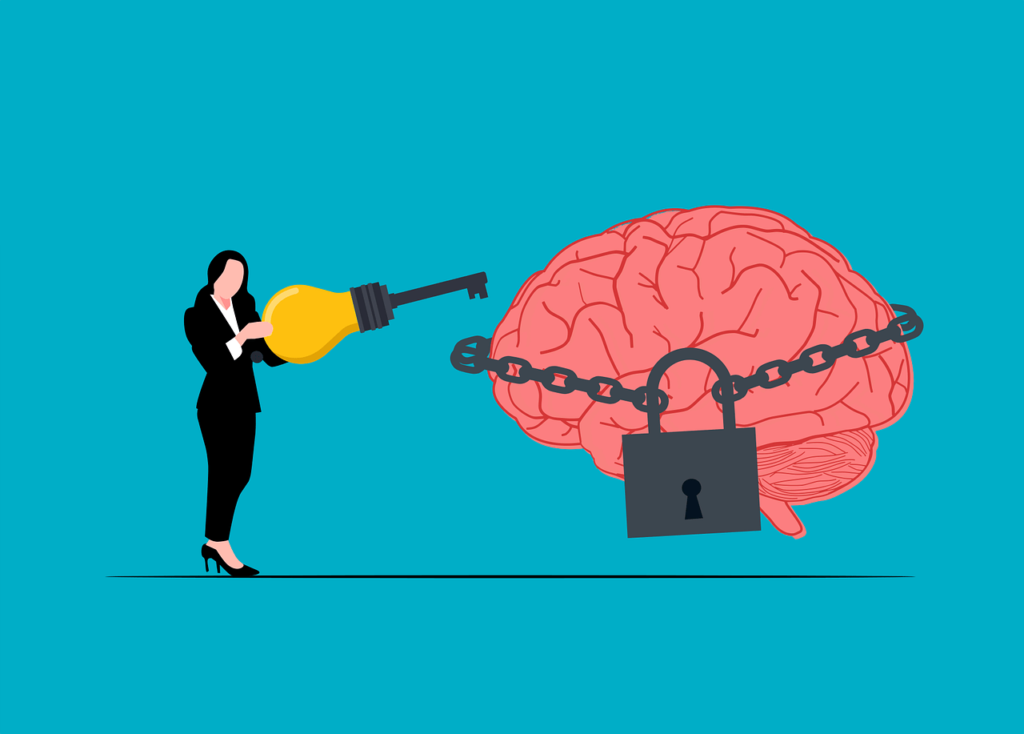Mindful Eating: Focus on Food, Boost Mental Health

Many of us eat three meals a day, but how many of us know where our minds are while we eat? Many times we look at our phones, watch TV, or have thousands of thoughts running through our heads while eating. However, Mindful Eating has a profound impact on our physical health as well as our mental health. In this article, we will learn how being mindful while eating reduces stress, helps control emotions, and plays a role in maintaining overall mental well-being.
The importance of mental health is increasing day by day, but we do not give as much importance to some simple daily habits, such as being mindful while eating, as much as they can have. Today, we will analyze how this simple yet effective habit can calm our mind, based on real experience and research.
What is Mindful Eating?
Mindful Eating is a practice where we pay full attention to and consciously experience the experience of eating food. It is not only about what we are eating or how much we are eating, but also about why we are eating, how we are eating, and how our body and mind react while eating.
The term Mindful Eating originally comes from the Buddhist concept of “Mindfulness”, which means being fully alert and aware of the present moment. When this principle is applied to eating, it can be seen that it increases our body’s ability to understand hunger and thirst, and at the same time develops mental peace and self-control.
The main elements of Mindful Eating:
1. Mindful Eating: Enjoying the taste, smell, texture and temperature of each bite.
2. Non-judgmental Observation: Just observing without blaming yourself or your eating pattern.
3. Understanding body signals: Understanding the signals of fullness and stopping eating, not overeating.
4. Gratitude for food: Thinking about where each food came from, who made it, and feeling gratitude.
Example:
If you are eating an apple, then Mindful Eating would mean holding the apple in your hand and feeling its color, smell, and texture; realizing its sound and taste when you take the first bite; and slowly chewing it and understanding its reaction in your body.
Mindful Eating is not a diet, but rather a mental practice that deepens and positively shapes our relationship with food. It benefits not only the body but also the mind, especially when we are stressed or emotional and tend to overeat.
How mindfulness during meals reduces stress
Stress has become an inevitable part of our daily lives. Whether it is work pressure, relationship tensions, or uncertainty about the future, our minds are often filled with worry. But surprisingly, just paying attention while eating can reduce this stress to a great extent.
1. Brings attention to the present moment
Stress or worry usually arises from worrying about the future or the past. But when we eat with full attention, the mind returns to the present moment. This gives the brain a break from the whirlwind of thoughts, which helps bring mental peace.
2. Increases the mind-body connection
During mindful eating, we notice the body’s reactions to the feeling of hunger, the feeling of fullness, the taste and smell of food. This practice creates a connection between the mind and body, which helps reduce mental instability. When the body realizes that it has found someone who listens, the mind also calms down.
3. Reduces the tendency to eat subconsciously
Many times, when we are stressed, we overeat, which is called “emotional eating”. This is harmful to health and later increases guilt. But Mindful Eating helps break this cycle, because it helps us understand why we are eating because of hunger, not because of emotion.
4. Regular practice develops a stress reduction habit
Developing the habit of eating mindfully for 15-20 minutes every day works like a kind of meditation. Studies have shown that practicing Mindful Eating regularly reduces the level of the stress hormone cortisol, which keeps the brain calm in the long run.
5. Teaches self-compassion
Mindful Eating teaches us to be respectful and kind to our bodies. When we eat with gratitude without judging ourselves while eating, positive emotions are also generated in the mind, which increases self-esteem and reduces stress.
Psychological benefits of Mindful Eating according to scientific research
Mindful Eating is not just a theory, it is a scientifically recognized technique for increasing mental well-being. Modern research has proven that paying attention while eating has a positive effect on both our brain and mind.
1. According to a report by Harvard Health Publishing
A study by Harvard Medical School said that practicing Mindful Eating not only helps control food intake, but also reduces stress, anxiety, and irritability. The study showed that those who eat mindfully at least once a day had significantly reduced levels of the cortisol hormone.
2. Research by the Journal of Obesity and Eating Disorders
In a study, the Mindful Eating method was applied to some participants for 2 months. It turns out that this practice not only helps with weight control, but also helps create a positive image of one’s body, which helps increase mental self-esteem and confidence.
3. According to the American Psychological Association (APA), a study published by the APA states that Mindfulness-based interventions, of which Mindful Eating is one, are effective in reducing depression, anxiety, and stress. It is especially beneficial for people who have trouble controlling their emotions.
4. A study by the University of California, San Francisco
This university study shows that people who practice Mindful Eating for a long time have increased activity in the prefrontal cortex of their brains, which is directly related to decision-making and emotional control.
5. Neuroscience research says that practicing Mindful Eating increases the release of serotonin and dopamine in the brain, which are important neurotransmitters for maintaining a good mood. This reduces stress and increases happiness.
Effective tips for developing Mindful Eating habits in real life
Mindful Eating is not just an idea, it is a daily practice, which gradually becomes a habit. By following some simple tips, you will be able to maintain mindfulness during meals even in a busy life and gradually start to reap its benefits.
1. Set aside eating time
Turn off all other activities while eating, avoid looking at your phone, watching TV or using your laptop. Focus only on food and that moment.
2. Eat slowly, enjoy every bite
If you have a habit of eating too fast, try to break it. Chew each bite, feel its smell, taste and texture. This gives the body time to send signals of fullness.
3. Feel hunger, not a habit
Before each meal, ask yourself: “Am I really hungry?” Eat only according to the true needs of the body, not out of emotion, habit or boredom.
4. Use small plates
Taking food on a small plate brings mental fulfillment, which helps prevent overeating. This is a simple tool for mindful eating.
5. Practice mindfulness while preparing food
When you prepare food yourself, pay attention to cutting the ingredients, smelling them, and listening to the sounds of cooking. This is the beginning of building a mindful eating habit.
6. Don’t eat too much at once
When there is extra food in front of you, the mind unconsciously eats more. So eat as needed and notice the feeling of your stomach at the end of the meal.
7. Have a ‘stop’ moment before starting a meal
Sit quietly for 30 seconds before eating and focus on your breathing. This calms the mind and increases awareness of eating. In today’s busy and anxious life, we often see food as just a means of fulfilling a physical need. However, food can be an exercise in mental peace and self-awareness if we understand the importance of mindful eating and apply it.
Mindful eating not only helps us control our weight or improve our digestion, but also helps us to gain inner peace, reduce stress, and regulate our emotions. Scientific research and practical experience have proven that this small yet profound habit is a priceless gift for our mental health.
So start practicing Mindful Eating by making small changes every day. You may not feel a big difference on the first day, but over time you will understand how much peace and self-awareness mealtime can bring to your life. You can share any comments you have here.
- Category : Self-Development
- Author : Tuhin Bin Alamgir



